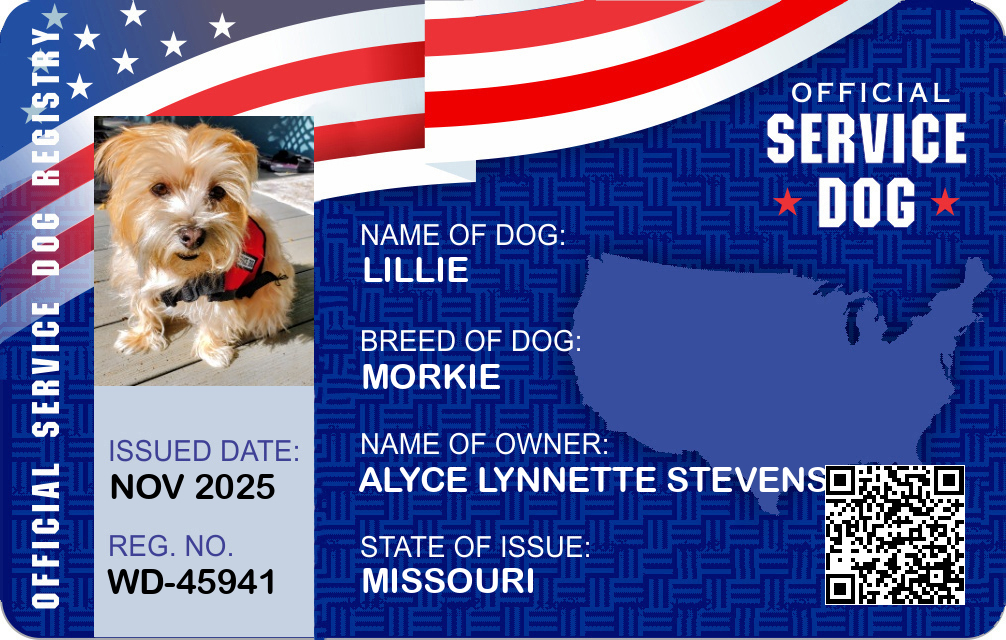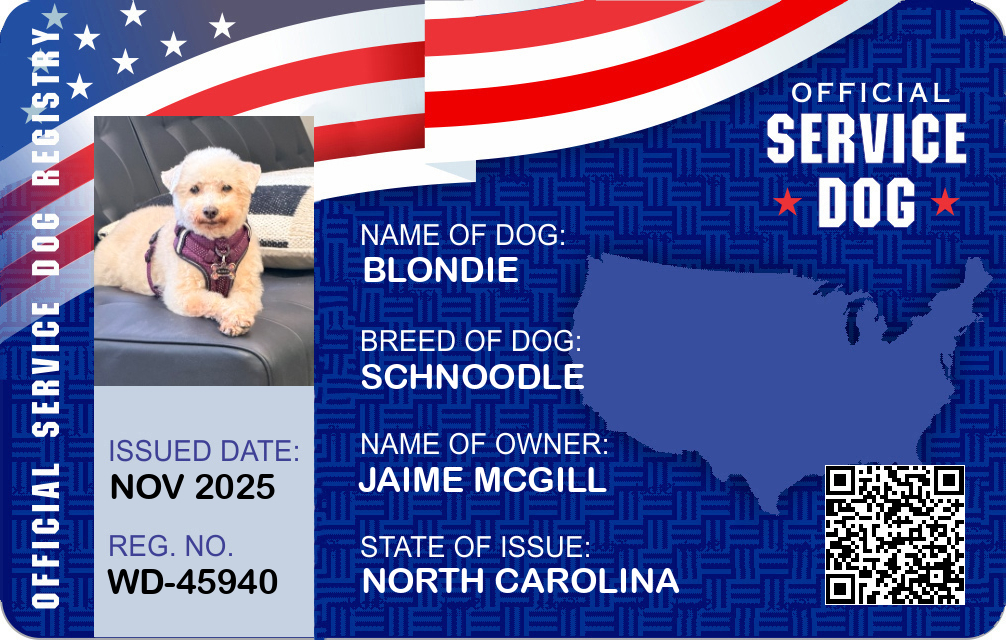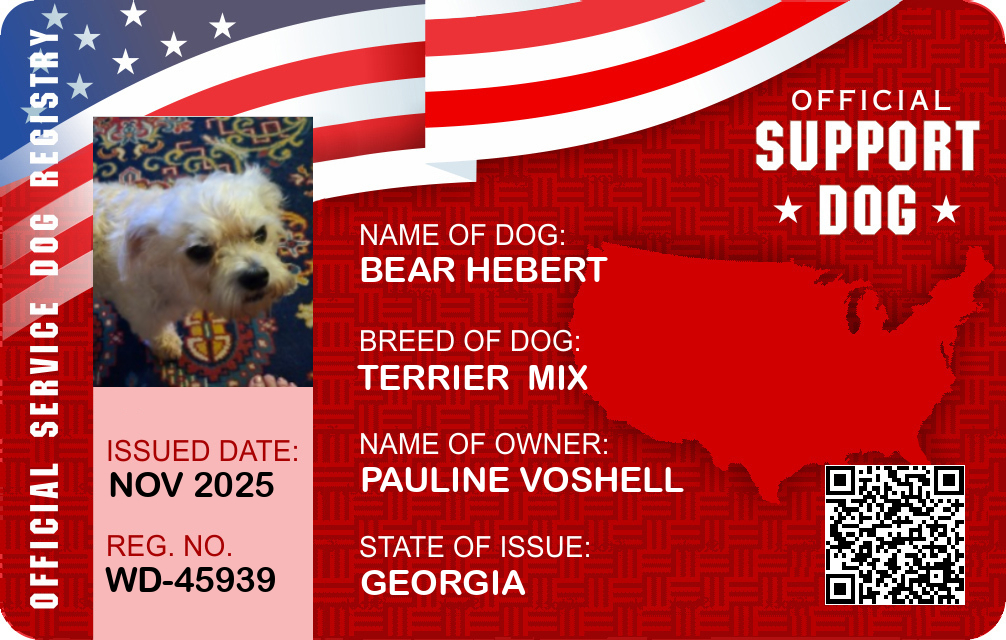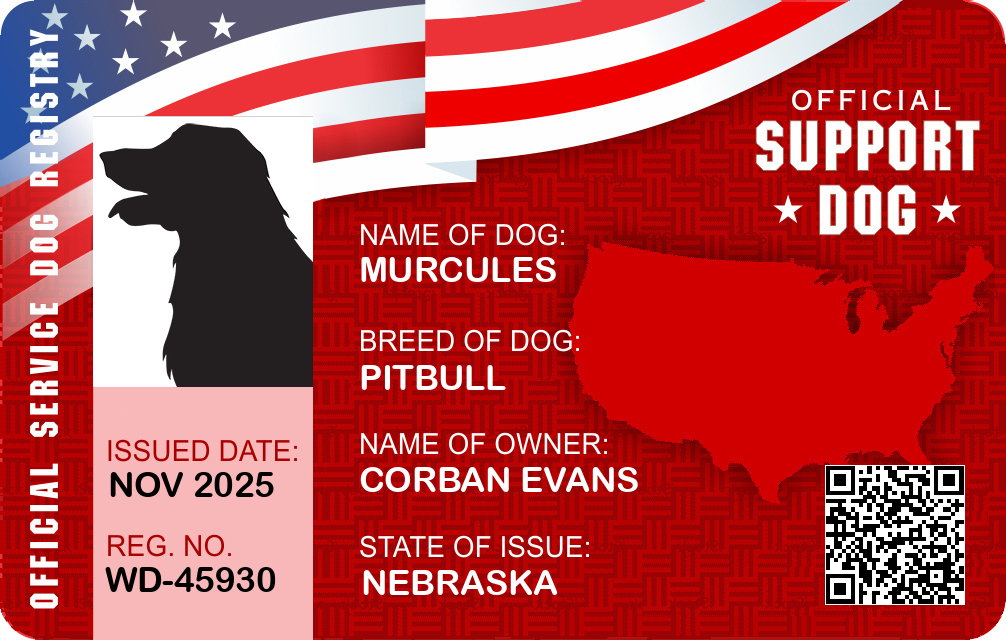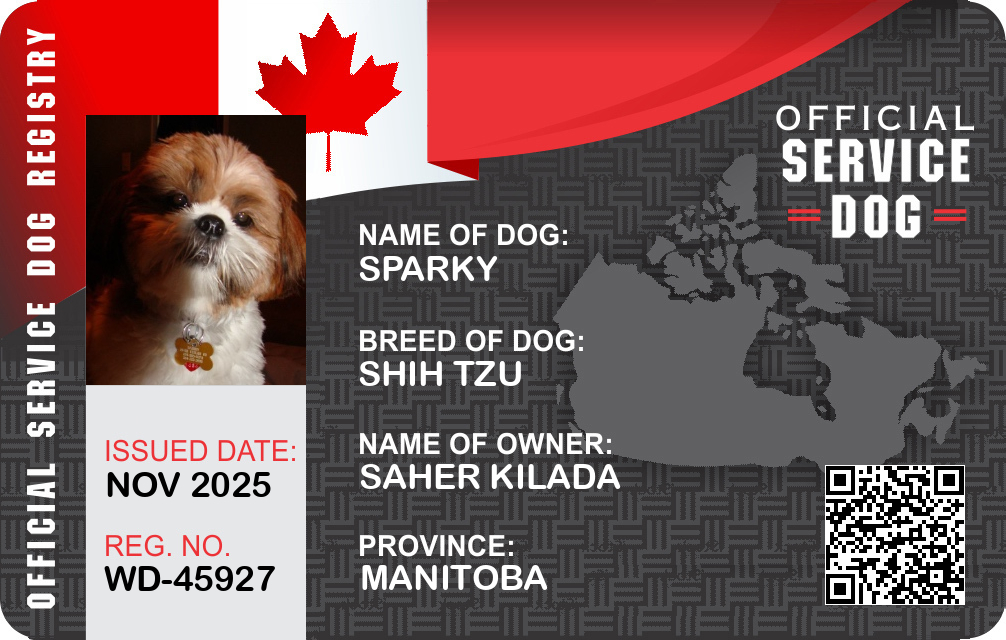Hawaii Service Dog Laws
Register Your Dog

Overview of Service Dog and Legal Definitions in Hawaii
What is a Service Dog?
In Hawaii, as in the rest of the United States, a service dog is defined according to the federal Americans with Disabilities Act (ADA) standards. A service dog is a dog that has been specially trained to perform tasks for an individual with a disability. These tasks are directly related to the person’s disability. Such tasks might include guiding individuals who are visually impaired, alerting individuals who are deaf, pulling a wheelchair, alerting, fetching dropped items, reminding a person to take medications, or pressing an elevator button. Service dogs are working animals and not pets, their primary function being to assist individuals in leading more independent lives.
How Service Dogs Differ from Other Types of Assistance Animals
It’s critical to distinguish service dogs from other types of assistance animals, including emotional support animals (ESAs) and therapy animals. While service dogs are trained to perform specific tasks related to a person’s disability, emotional support animals provide comfort through companionship and do not require task-specific training. Therapy animals are often used in settings like hospitals or nursing homes to help alleviate stress or provide comfort, but they are not covered under the ADA for personal accommodation.
Key Federal Laws Affecting Service Dogs (e.g., ADA, FHA, ACAA)
The ADA is the cornerstone federal law that governs the rights of individuals with service dogs. Under the ADA, service dogs are allowed to accompany their handlers in nearly all public areas and are not subject to pet fees that might be applied to other animals. The Fair Housing Act (FHA) further extends the right to housing accommodations, allowing service dogs in residences even with blanket no-pet policies. The Air Carrier Access Act (ACAA) governs the rights of service dog handlers in air travel, ensuring they can fly with their service dogs without additional charge, though changes to the ACAA in recent years have tightened rules around emotional support animals.
State-Specific Service Dog Laws in Hawaii
Hawaii adheres to federal standards but has its own nuances in interpretation and implementation of service dog laws. The state law mirrors much of the federal law under the ADA and FHA with minor differences, particularly in the procedures and documentation requirements for landlords and businesses when interacting with service dog handlers. Hawaii does not require special tags, licenses, or documentation for service dogs, but proof of the animal’s training and the handler’s disability might be asked by housing providers.
Housing Rights and Responsibilities
Under both federal and Hawaii state law, service dog handlers have specific rights when it comes to housing. Landlords cannot refuse housing to individuals with service dogs, even if the housing unit otherwise has a strict no-pet policy. Furthermore, service dogs do not carry associated pet deposits. However, handlers are responsible for any damage caused by their service dog, just as they would be for personal damages.
Public Access and Accommodation
Public places in Hawaii, including restaurants, stores, hotels, and educational institutions, must allow access to individuals who use service dogs. Employees may only ask two questions: whether the dog is a service animal required because of a disability, and what work or task the dog has been trained to perform. They cannot demand details about the handler’s disability or require documentation of the dog’s certification.
Transportation and Travel Rules
Hawaii adheres to the federal ACAA when it comes to airline travel, ensuring service dog handlers can travel on planes. Service dogs must be accommodated free of charge and without the imposition of pet carrier policies that apply to other animals. It is advisable for service dog handlers flying into Hawaii to be aware of the state’s unique rabies-free status, which might necessitate additional documentation or processes for out-of-state dogs.
Employment and Workplace Considerations
In the workplace, the ADA protects service dog handlers, stipulating that employers must accommodate the presence of service dogs unless it would present an undue hardship or pose a direct threat to safety. Employers
in Hawaii cannot discriminate against potential or current employees for the use of a service dog but might ask for documentation of the disability when such accommodations are requested.Documentation, Requirements, and Processes in Hawaii
Service Dog Documentation and Who Can Issue It
In Hawaii, no formal registry or state-specific documentation is required for service dogs. Nonetheless, documentation of training and necessity — such as a letter from a healthcare provider — can be beneficial in resolving disputes. Those who train service dogs, whether through professional programs or self-training, should keep records of the training regime and the dog’s capabilities.
Landlord, Business, and Provider Verification Rules
Landlords in Hawaii may ask for proof of the service dog’s certification or proof of necessity but must be cautious not to breach privacy laws concerning the handler’s medical conditions. Business owners can request to know if the dog is a service animal and what tasks it performs, but they cannot demand proof of registration, certification, or the nature of the handler’s disability.
Rights, Limitations, and Legal Risks
Rights Service Dog Handlers Have in Hawaii
Service dog handlers in Hawaii enjoy broad rights, ensuring equal opportunity and access to facilities and accommodations enjoyed by the general public. This includes access to public spaces, housing, and transportation without the imposition of pet fees. Employers must provide reasonable accommodations for service dogs in the workplace.
Limits on Service Dog Protections and Common Restrictions
While rights are extensive, there are limits; for instance, if a service dog is unruly, aggressive, or poses a direct threat to the health and safety of others, a business may exclude the animal from the premises. Additionally, certain areas, like kitchens and sterile hospital zones, might be exempt from mandatory access for service dogs for health and safety reasons.
Penalties for Fraud or Misrepresentation
Falsely claiming a pet as a service dog is illegal in Hawaii and punishable by fines and other penalties. Such actions not only undermine the legitimacy of service dog handlers but can also result in broader scrutiny or restrictions for legitimate service animals.
Practical Guidance for Service Dog Handlers in Hawaii
How to Qualify for a Service Dog Legitimately
Qualification for a service dog begins with a recognized disability that impedes one or more major life activities. The handler should consult with medical or psychological professionals to ascertain the benefit of a service dog for their specific condition. Seeking training through accredited bodies can help ensure the service animal is adequately prepared for its duties.
How to Talk to Landlords, Airlines, and Employers
Communication is key. Handlers should be prepared to politely and informatively explain their rights and the roles of their service dogs. While excessive documentation isn’t necessary, presenting clear information about the dog’s abilities and handler’s rights can preclude misunderstandings. In air travel, advance communication with airlines about specific requirements pertaining to Hawaii’s regulations can facilitate a smoother journey.
Summary of Service Dog Laws in Hawaii
– Hawaii law parallels federal service dog laws, ensuring public, housing, and travel rights under ADA, FHA, and ACAA statutes. – No state-specific registry for service dogs exists, but handlers should maintain detailed training and necessity documentation. – Misrepresentation of pets as service dogs is illegal, with penalties for violators. – Handlers must communicate effectively with property managers, airline staff, and employers to ensure seamless access and accommodations for their service dogs. – Limitations apply when service dogs pose direct threats to safety or cannot be accommodated due to health regulations.
By understanding both federal and Hawaii-specific provisions, service dog handlers can confidently navigate their rights and responsibilities, ensuring their service animals can effectively aid in their daily lives.



